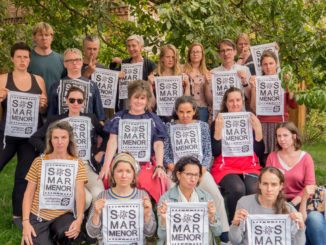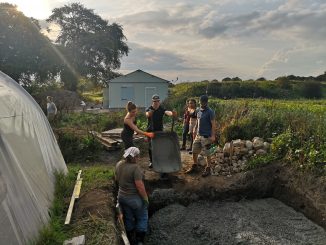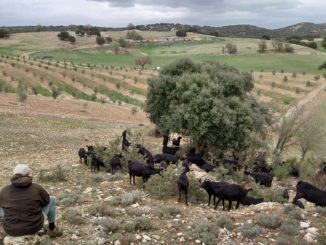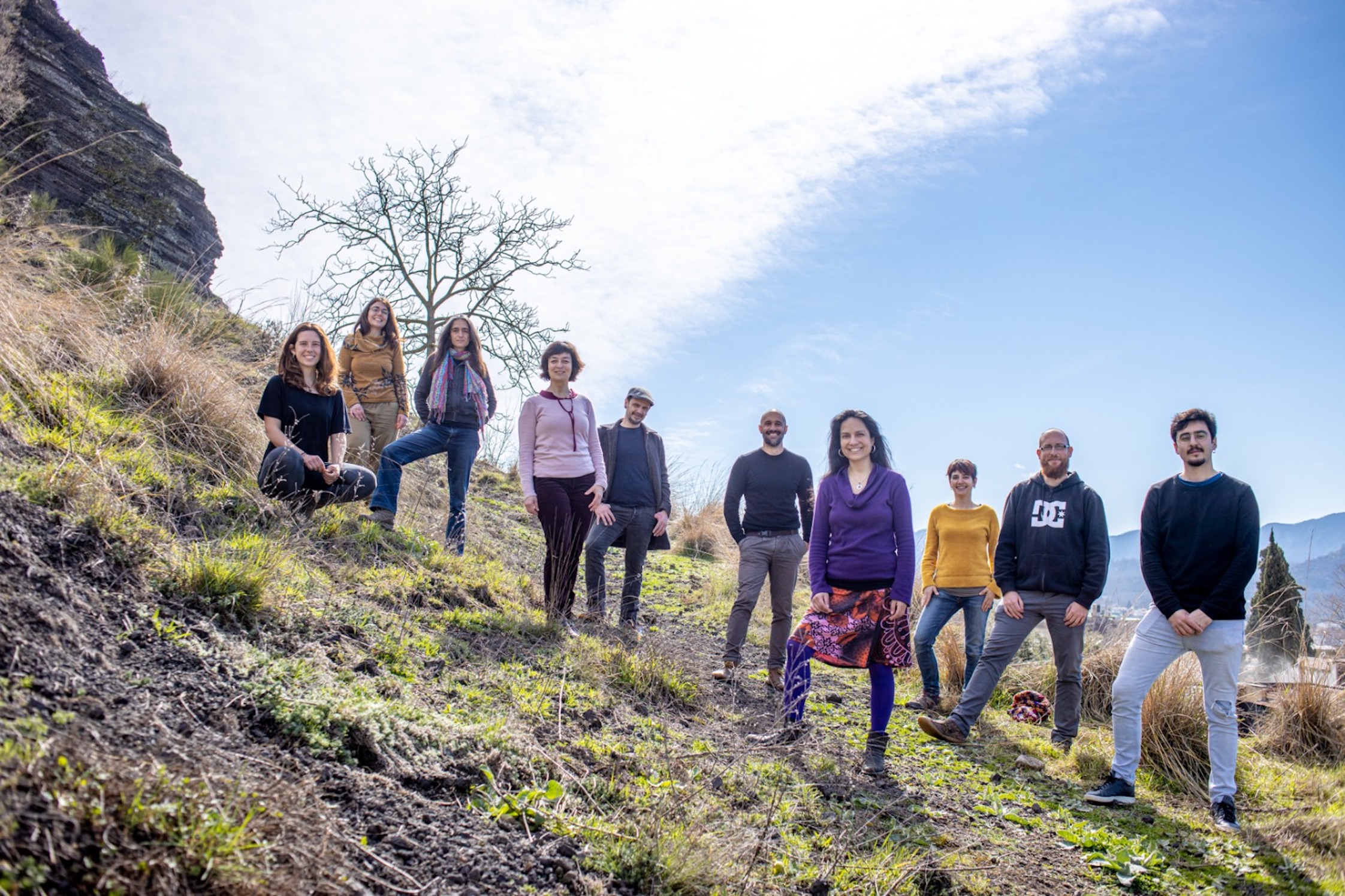
Next in our series of extracts from “Rural Europe Takes Action – No more business as usual” is the story of Resilience.Earth, a non-profit cooperative committed to community resilience and regenerative design as fundamental tools for social and ecological transformation. In engaging rural communities, Resilience.Earth builds from a feminine, indigenous and decolonial perspective. This story features alongside other inspiring initiatives in the chapter in Rural Europe Takes Action on Cohesion and Democracy. Emerging from these stories are action points on how policy could support inclusive dialogue and community-led regeneration. We summarise these messages for policymakers before presenting our conversation with Erika Zárate, a senior consultant at Resilience.Earth.
The Rural Europe Takes Action e-book is available here. To order a copy, contact info@forum-synergies.eu.
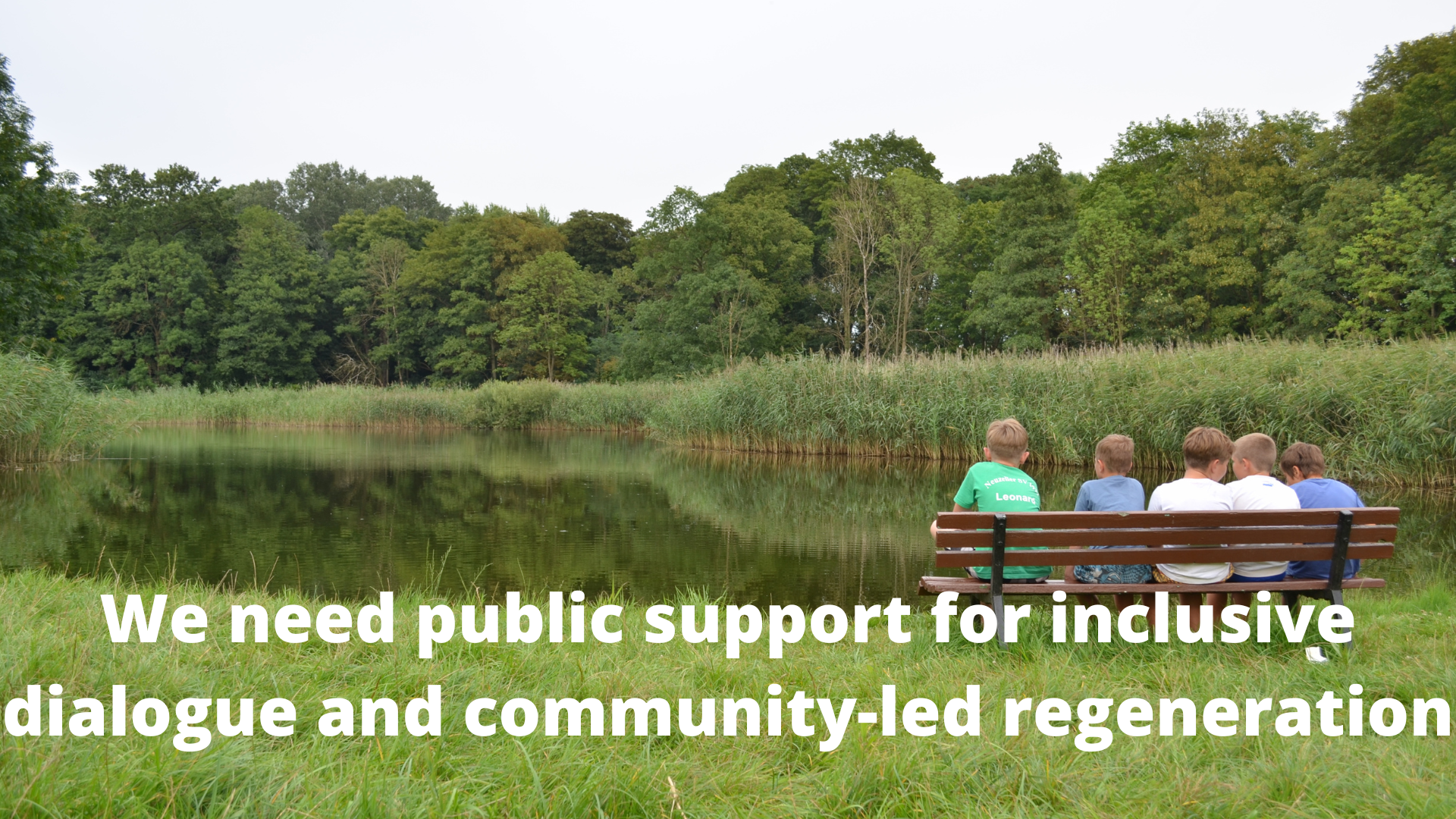
Policy Action
We need public support for inclusive dialogue and community-led regeneration.
Be more human and give people a chance. Social cohesion and democracy grow in a spirit of common interest and respect. The communities in this chapter are reframing tired tropes about rural areas, welcoming and proving that solidarity and inclusive dialogue help us to live together in harmony. We urgently need dedicated space and resources for meaningful dialogue and collective decision-making in rural governance.
Regenerative Governance
A conversation with Erika Zárate, a senior consultant at Resilience.Earth who accompanies communities and administrations to develop more regenerative models of governance.
We see the work we do as a process to decolonise and reconcile structural violence, and transform it into something that is regenerative and nourishing for our communities and ecosystems, making them more equitable and resilient.
Warming the field for citizen-led government
A gentle way to start is by doing interviews with key actors and mapping out the different players, the more visible ones and also the invisible ones. By analysing the community mapping, we can detect the diversity of the rural community, and are able to create a commission tasked with representing the voices of that diversity. They are the knowledge holders and they help us design the process best suited and adapted to the needs and the context of that land and its people.
About seven years ago in Spain there was a shift in local politics away from party politics to independent grassroots groups running for office. We have gone through a couple of municipal elections like that, and this is starting to warm the field for public administration deeply interested in citizen-led governments.
Resilience.Earth works at the territorial level. When one municipality in La Garrotxa started working with us, others wanted it too, regardless of their political leaning. The funding we are able to apply and obtain for these municipalities was small, but it made it a bit easier for local administration to carry out participatory processes. However, the next challenge, of course, is how to generate meaningful change from the participative processes.
Reconciling tensions of deeper systemic problems
There is a need to link community-led local development with community-led climate action. Story mapping and dialogue can unlock communities’ imagination and help them see the pathways to climate action.
How to approach this kind of work? If you’re looking at reconciling the tensions of deep systemic problems instead of trying to fix or resolve them, it changes how you think about and do community-led local development work. We accompany people to think about the challenges of their community. In these spaces it is so important to have public administration, private sector, general community and civil society. After you do interviews and create the commission, you can do a first public event.
Hours of preparation go in to make sure that the diversity of voices is represented. We live in rural areas, where almost a quarter of the population are from migrant communities, mostly from Senegal, Gambia and India, and also China and Romania. These communities are often excluded (intentionally and unintentionally, and as a result of structural violence) from these dialogue spaces. We pay extra attention to make sure, that these communities are able to participate and think about their community, reflecting upon the most visible problems, to the structural and strategic problems, and to the essence of the cultural paradigm.
The structural level is key. At this level, what people are asking for, and what we are trying to accompany them to build, is an Open Governance Structure – it looks different in each community, but certain features are quite similar: a space with designated people that is also permeable and open to other people participating if they choose to; the designated people are representative of the diversity and are a kind of community voice to accompany the public administration to make sure that their decisions are truly responsive to all the needs that have been detected.
Open governance structures exist
We have been accompanying communities for 5 years now in community-led policy design at the development level, practical level, evaluation level. We translate what communities say into policy language.
We are just closing a regional strategic plan linking all 21 municipalities in La Garrotxa. There was over 11% active participation in the construction of this Evolutive Strategic Plan for Territorial Resilience. The beauty of this plan is that it was not just a document that the regional government funded, but rather a process which engaged everyone involved to present strategies, objectives and actions that they would lead and even finance or put human power into. This strategic plan is not led by the public administration; it is stewarded by everyone.
There is also a plan in the tourism sector in the neighbouring community going into its second year. I am amazed how they are able to bridge differences – now they can see, respect, understand and empathise with each other. There is real dialogue.
Funding
Local and European funds are difficult to access here, especially if you are a small rural organisation or community. The funding available to us is almost exclusively from
the provincial government. While greatly needed and appreciated, this funding is often insufficient to fully pay for community-led assessment and planning processes that move us towards more open governance structures and the collective stewardship and implementation of community development projects. As a non-profit co-op, we often co-fund these processes with our annual surplus, should we have any, or use our small bank of paid community service hours that each co-op worker is allotted to accompany and support rural grassroots organisations and communities who don’t have the money to pay for such services usually.
Two things would be helpful to improve funding: accessibility to funding and raising awareness of policy in relation to funding. Also, there could be support at local or regional level to facilitate climate officer roles.
More from Rural Europe Takes Action
Rural Europe Takes Action | Creating Alternatives, Creating Community


